





Sheep milk
Sheep milk is traditionally used in the North Caucasus, in Central Asia, Transcaucasia and the Crimea. Also sheep milk is widely used by residents of the countries of the Middle East, Greece and Italy. In these countries special breeds of sheep which during a lactation, lasting from 4 to 5 months, are capable to give to 150 kg of milk are removed. Sheep milk is the very caloric and nutritious product having gentle and slightly sweetish taste. From it produce oil, curdled milk, yogurts, kefir and, of course, around the world gourmets well know taste of cheese from sheep milk.
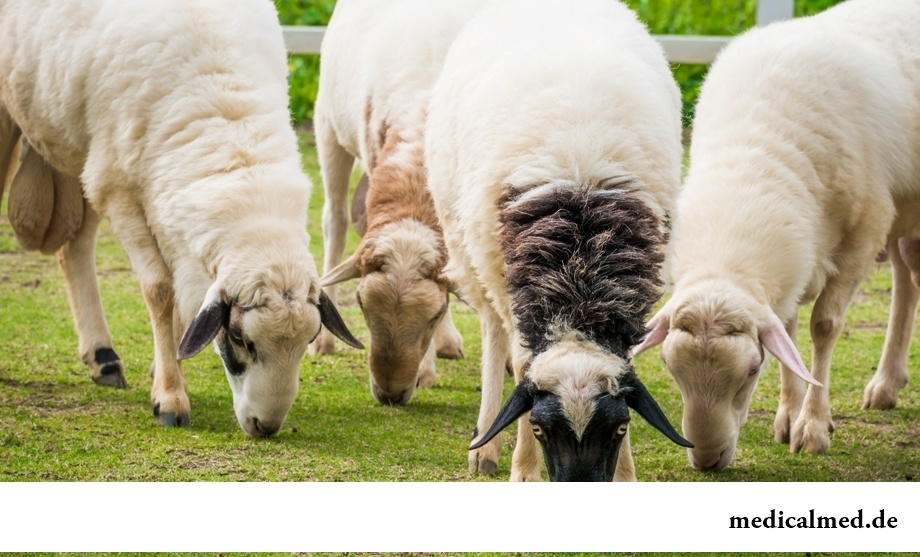
Use
Because of a specific smell sheep milk is seldom used in an integral look. Usually from it produce various fermented milk products and cheeses. Nutrients of sheep milk are easily acquired therefore nutritionists recommend to include it in a diet of elderly people and children. However this product comprises a large amount of fats and therefore to the persons inclined to obesity, it is desirable to drink whole sheep milk and fermented milk products from it, having parted them with water.
Structure and properties of sheep milk
Sheep milk is 1,5 times more nutritious than some cow's milk. It is vitamin-rich groups B and vitamin A. Sheep milk is especially useful for pregnant women and children, teenagers. This milk is famous for the antioxidant properties. At its regular use digestion of oxygen and nutrients brain cells therefore memory improves, concentration of attention improves, ability to training increases.
Sheep milk contains about 10% of fat and to 20% of dry matters. In comparison with cow's or goat milk it contains several times more zinc and calcium. Calcium of sheep milk is in a digestible form, besides the ratio of phosphorus and calcium in it is ideal. For this reason nutritionists advise regularly to use sheep milk for treatment and prevention of osteoporosis. Besides requirements of calcium sharply increase after transferring of catarrhal diseases. Zinc is necessary for health of skin and hair, as well as for the overall good health in general. Sufficient receipt with food of zinc promotes increase in appetite. In this regard sheep milk is recommended to be included in the menu of the people having anorexia.
Protein of sheep milk has smaller allergenic properties, than proteins of goat or cow's milk. Sheep milk is shown at bronchial asthma, eczema and other allergic diseases. Sheep milk protein content makes 5,6%, and the caloric content of 100,0 g of this product – 109,7 kcal.
Only one cup of warm sheep milk drunk for half an hour to a dream will present you a sound and healthy sleep.
Contraindications
Sheep milk and products from it have to be excluded from a diet of the people suffering from individual intolerance (idiosyncrasy) of this food stuff.
Cheese from sheep milk
Thanks to the high nutritious qualities, high content of fat and protein, and also a peculiar smell sheep milk is almost ideal initial raw materials for production of cheeses. In the different countries cheese is made of sheep milk on different technologies and, respectively, is called differently. The following types of cheese from sheep milk are the most known:
- Roquefort cheese – world-famous French sheep cheese;
- Provencal cheeses – all of them are made only from sheep milk. The most known among them are Bruss-du-Rov and Pikodon;
- Sheep cheese – one of types of brine cheese;
- Feta – the most traditional brine cheese in Greece.
Advantage of cheese from sheep milk
Sheep cheese contains all irreplaceable amino acids. Onbogat protein, microelements, vitamins. Cheese can be compared to a concentrate of milk in which all useful and nutrients contain in much bigger concentration safely.
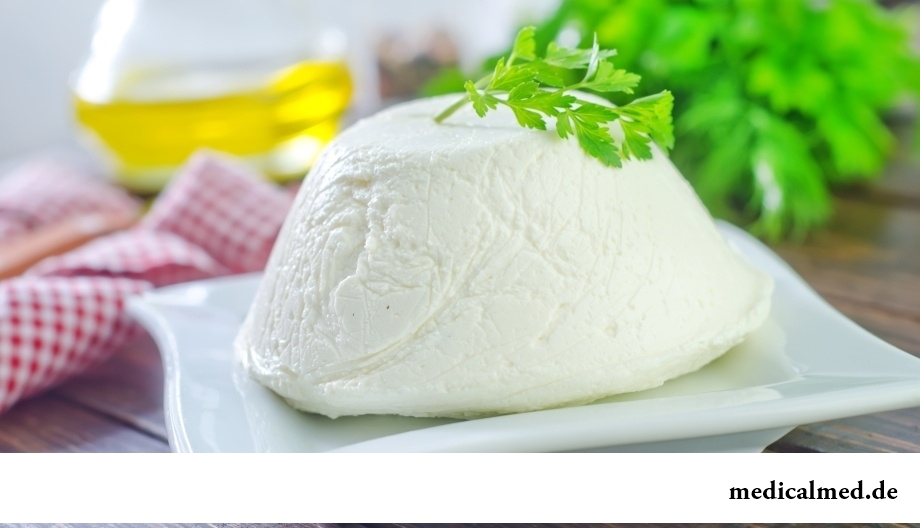
Among those people which regularly eat cheeses from sheep milk significantly less diseases of organs of sight, digestive tract are observed. Contents in these cheeses of salts of calcium and phosphorus moreover and in the most optimum ratio is considerable that does their use by an excellent preventive measure of development of osteoporosis, and also promotes reduction of terms of accretion of changes.
Cheese from sheep milk contains more than 30% of fats and it is carried to fat and high-calorific products. Therefore, despite all useful properties, it is necessary to eat it reasonably. So the adult in day should eat no more than 100,0 - 150,0 g of sheep cheese. This quantity will allow to fill an organism with fats, protein, lecithin, mineral salts and vitamins, but at the same time and will not lead to adjournment of excesses of fats in the form of extra kilos.
Cheese from sheep milk is especially useful to pregnant women, nursing mothers, children and teenagers, and also the people doing hard manual work and spending too much energy.
If to smile all twice a day – it is possible to lower blood pressure and to reduce risk of developing of heart attacks and strokes.

Today about 30 diseases, sexually transmitted are known. To wide circulation of these illnesses extremely with...
Section: Articles about health
Such trouble as the milkwoman's attack, at least once in life happened almost to each woman. Prevalence of a disease is explained by the fact that the causative agent of an illness belongs to the so-called opportunistic microflora living on mucous an obol...
Section: Articles about health
The kid who was recently born is surrounded with love of adult family members and their cares without which the baby cannot exist. Some parents consider that gentle attachment and caress are quite enough that the child correctly developed and was happy, but it not so. It is important to know as much as possible about specifics of care of the baby, the reasons of his behavior and possible problems. Only the "able to see" love will provide to the little man that it is necessary for him....
Section: Articles about health
White teeth and the Hollywood smile – a dream of many people. Long time was considered that a plaque on teeth and change of their color – destiny of those...
Section: Articles about health
For anybody not a secret that our country is one of the most "drinking" in the world. At clear understanding that the use of hard alcoholic drinks – occupation extremely harmful, most of Russians belong to alcoholism with unjustified loyalty. These...
Section: Articles about health
Shops of household appliances offer us the huge choice of various devices for the house. Whether there are among this abundance devices which not only facilitate house work, but also help to keep health of the person? Of course, and we will tell about them today....
Section: Articles about health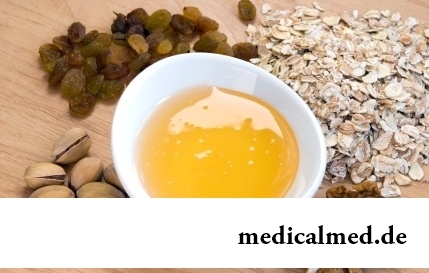
Let's begin with the fact that a separate illness which is called "adjournment of salts", just does not exist. In practice this household name of plank beds...
Section: Articles about health
Energy saving lamps are one of the most popular products of innovative technologies, and there is no wonder: they much more economic also are more long-lasting than usual filament lamps. At the same time there are fears that energy saving bulbs can become the reasons...
Section: Articles about health
All of us, unfortunately, should face flu nearly an every year. It would seem, so frequent disease has to be studied already up and down, and each person, at least once to them had (and the number of such people in our country aims at 100%), has to know the basic rules of its treatment. However as shows experience of doctors, there is no it, and often people, self-confidently thinking what is known as it is necessary to be treated, make mistakes....
Section: Articles about health
Musicotherapy – a treatment method which caused and causes a set of a controversy concerning its efficiency. However the facts are relentless:...
Section: Articles about health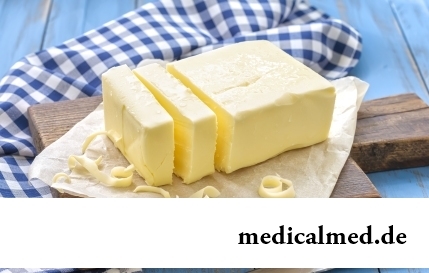
Within several decades of our compatriots convinced that the use of butter nasty affects a condition of coronary vessels. As a result the reputation of a product was impaired thoroughly a little, and many almost ceased to include...
Section: Articles about health
Subfebrile temperature call fervescence to 38 degrees, and subfebrile condition - existence of such temperature over 3 days, and quite often it happens without the visible reasons. Existence of subfebrile condition - a strong indication of disturbances in an organism which can be caused by various reasons: disease, stresses, hormonal failures. Despite the seeming inoffensiveness it is a state at which people often continue to lead a usual life, often is a sign of many of a zabolev...
Section: Articles about health
So, you resolved to lose weight. And now you try to understand what to begin with: from exercise stresses or a diet? And how to make, h...
Section: Slideshow
The saying "the rich do not know how the other half lives" is known to all. In a broad sense it is that we can not always understand the person whose features of a state are unknown to us. If with physiological characters of diseases the situation is more or less clearly (having noticed and...
Section: Articles about health
Urogenital candidiasis (milkwoman) – a fungal infection which annoys unpleasant feelings in the field of generative organs, being followed by white curdled allocations, an itch, discomfort during an urination, pain. She is called by Candida fungus – the opportunistic organism living on mucous membranes of an organism....
Section: Articles about health
Each failure in work of bodies and systems of a human body is, as a rule, shown by the whole complex of symptoms. In particular, N...
Section: Articles about health
The brain of the person is studied not one hundred years, but the quantity of the riddles connected with this body increases rather, than decreases. Perhaps, numerous delusions concerning a structure and functioning of a brain, many are explained by it from...
Section: Articles about health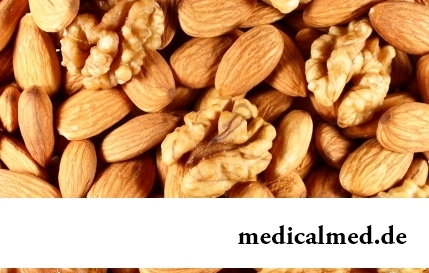
For the last decades the diabetes mellitus of the second type became really world problem. The number of cases annually increases, and average age of patients for whom the illness is diagnosed, steadily decreases. Specialists consider that one of the main reasons for this trouble is disturbance of a diet. In other words, the huge number of people regularly overeats or excessively is fond of the products causing glucose exchange process failures....
Section: Articles about health
Life of the modern child is extremely active and difficult. Information strain which is experienced by the school student and did not dream the pupil...
Section: Articles about health
Life of the modern woman is very difficult. Opportunities to realize itself are wide: it not only education and career, but also the most various hobbies from sport before needlework. It is not less important to build private life, paying an attention maximum to children, the husband, parents, e...
Section: Articles about health
Each person has easy indispositions which he transfers "standing", trying not to ask for medical care. Arguments at the same time are adduced same: "it is a trifle, itself will pass", "I have too many important issues", "there are no wish to spend time for doctors", etc. At good shape of health, normal working capacity and lack of suspiciousness dislike for complaints to such problems is quite natural. It is not the most correct, but very widespread type of behavior. I am glad...
Section: Articles about health
Sugar - the digestible refined product which is not of special value for an organism of the modern person. Use...
Section: Articles about health
Kidneys perform the most important function of clarification of blood from those products of metabolic processes which cannot be used by an organism for obtaining energy and construction of new cells. With the urine produced by kidneys from a body of the person bulk is removed...
Section: Articles about health
The phenomenon of the panic attack is known long ago, but the reasons of its emergence still are up to the end not found out. It is established that more than 30% of people at least once in life become the victims of very unpleasant phenomenon: without everyones on that the reasons they have a feeling of horror which is followed by a cardiopalmus, a shiver and the fever or feeling of sudden heat increased by sweating, breath constraint, dizziness, nausea....
Section: Articles about health
What woman does not dream of a beautiful and thick hair? So far physicians developed difficult schemes on hair transplant, in the bet industry...
Section: Articles about health
Bees – really unique beings. Practically all products of their life activity are used by the person. Since the most ancient times medicinal properties of honey and other substances received in the course of beekeeping are known. The fact that all these пр is especially significant...
Section: Articles about health
Each woman has preferences in the field of use of those goods which help us to look good, feel young and effective. Besides: selection process of favourite perfume, shampoo or decorative cosmetics already lightens the mood and serves as a peculiar stress medicine. Happens very offensively when the acquired perfumery and cosmetic products not only do not meet our expectations, but also becomes the reason of problems with health. Sources неприятн...
Section: Articles about health
